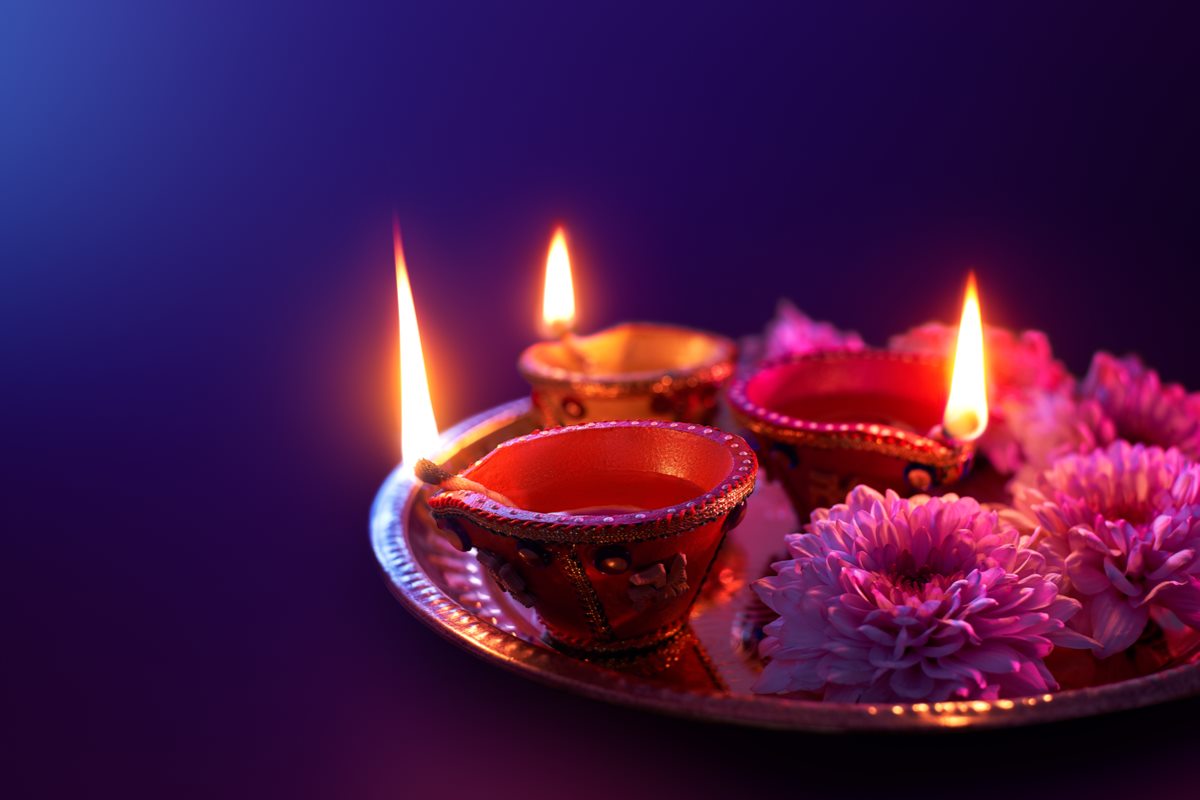Today, October 20, 2025, India celebrates Diwali, the festival of light that symbolizes the victory of good over evil and knowledge over ignorance. A celebration that unites different religions, blending spirituality, traditions, lights, sweets, and purification rituals, increasingly experienced in a sustainable way.

Table of contents
In India, between October and November, the festival of Diwali is celebrated, also known as Divali or Deepavali. It is one of the most important and deeply felt occasions in the country, dedicated to light as a symbol of hope, justice, and prosperity. This year, Diwali falls today, October 20, 2025, but in many regions the celebrations will continue over the coming days, as tradition dictates.
The origins of Diwali
The roots of this festival are deeply embedded in Indian history and spirituality. Buddhists, Hindus, Jains, and Sikhs all celebrate it, each with a different meaning but connected to the same theme: the victory of light over darkness.
For Hindus, Diwali marks the return of Prince Rama to the kingdom of Ayodhya after fourteen years of exile and his victory over the demon Ravana. It is also the day dedicated to the goddess Lakshmi, consort of the god Vishnu and symbol of wealth and prosperity.
In anticipation of the festival, families clean and decorate their homes, purchase new clothes, and prepare sweets to share with relatives and friends. Oil lamps are lit and doors left open to guide the goddess Lakshmi into the homes, so she may bring good fortune and abundance.

©phive/Shutterstock
Light as a symbol of rebirth
During Diwali, Indian cities transform into an immense spectacle of lights. Streets, temples, and homes are decorated with thousands of small flames and colorful lamps. It is a time when the bond with the community and one’s spiritual dimension is renewed.
Many take this opportunity to reconcile with family and friends, letting go of grudges and misunderstandings. Diwali thus becomes not only an outward celebration, but also an inward one, an invitation to renew oneself and find balance.
One of the most recognizable elements of the celebration is the rangoli, a design created with colored powders, rice, or flower petals at the entrance of homes. Each family creates different ones, as a wish for good luck and welcome for guests.
The flavors of Diwali
Food plays a central role in the festival. Among the most prepared sweets are ladoo, made with chickpea flour, ghee, and sugar, and barfi, a milk-based sweet flavored with cardamom or enriched with dried fruit.
During Diwali, families cook in large quantities, sharing dishes and sweets with friends, neighbors, and colleagues. It is a gesture that represents generosity, gratitude, and the celebration of abundance.
The different spiritual interpretations
Each religion experiences Diwali in a distinct way, but all share the value of light as a symbol of knowledge and awareness.
For Buddhists, the festival coincides with the conversion of Emperor Ashoka, who abandoned violence to embrace the path of peace.
Jains celebrate the enlightenment of Mahavira, founder of Jainism.
For Sikhs, Diwali commemorates the liberation of Guru Hargobind Singh Ji in 1619, an event that marks the victory of spiritual freedom and justice.
In all its forms, Diwali remains a moment of reflection and purification. The light of the lamps represents the purity of the soul and the ability to ward off negativity, opening the way to a new cycle of life.
A more sustainable Diwali
In recent years, the trend to celebrate an eco-sustainable Diwali has spread throughout India. Many people choose to forgo fireworks to reduce pollution, preferring natural lights, solar-powered lamps, and decorations made from recycled materials.
This new environmental awareness takes nothing away from the magic of the festival, but enriches its meaning, making it more conscious and respectful of nature.
The festival of light
Diwali is much more than a religious celebration: it is a moment of collective renewal, of reconciliation and hope. In every home, the light of the lamps becomes a universal message of peace, harmony, and trust in the future.
Today, October 20, 2025, all of India shines with millions of lights that tell the same story: that of the victory of light over darkness, of good over evil, and of life that, once again, is reborn.
